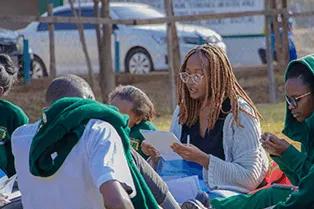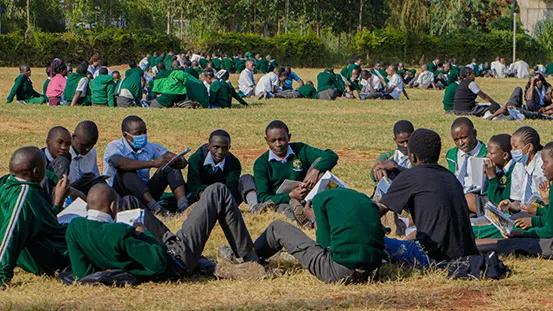Benin
Health
Training dogs to detect breast cancer, a method for screening disadvantaged women in Benin
Impact
News and Insights
The Anansi program, developed by Shamiri Institute in Kenya, is an evidence-based innovative mental health protocol for low-income youths. FID grant will fund a large-scale dissemination study to generate further evidence on implementation outcomes, cost-effectiveness and generate causal evidence on poverty and mental health.
Project ported by:


In Kenya, where 50% of the population is aged 19 or younger, nearly one in two Kenyan youth reports elevated symptoms of depression and anxiety. Yet, young Kenyans with mental health issues have few opportunities to seek help. Traditional psychotherapy remains highly expensive and requires expert intervention while there is one clinician for every million citizens in the country. Social stigma in mental health also inhibits help-seeking behaviour.
As such, young people struggle with (sometimes lifetime) medical, educational, economic, legal, and interpersonal problems that affect their well-being and increase their risk to live in poverty.

Shamiri means “thrive” in Kiswahili. Since 2017, Shamiri Institute has developed the Anansi program, aimed at addressing youth mental health issues in Kenya with :
In 2022, 4,500 youths received Anansi in ten secondary schools in Kenya.

FID will finance a 24-month intervention to conduct a large-scale dissemination impact evaluation among 25,000 low-income youth to:
In addition, it will also contribute to generating causal evidence on poverty and mental health as well as further evidence on the long-term effects of Anansi on a wide range of well-being and functioning outcomes.
Projects
Projects funded by FID